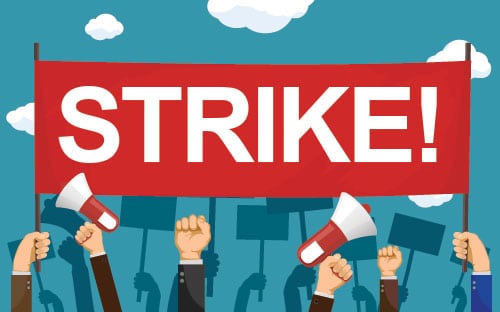Strike staffing agencies, which specialize in providing temporary workers during labor disputes, have become an essential resource for businesses navigating the complexities of strikes and other workforce disruptions. These specialized agencies have evolved over time, shaped by historical events, changes in labor relations, and shifts in economic conditions. In this article, we will explore the origins and development of strike staffing agencies, highlighting the key factors that have contributed to their emergence and growth as a distinct industry.
Early Labor Disputes and the Emergence of Strikebreakers
The roots of strike staffing agencies can be traced back to the early days of the labor movement when workers began organizing to demand better wages, working conditions, and job security. As strikes became more frequent and disruptive, employers sought ways to maintain operations and protect their financial interests. One strategy that emerged was the hiring of strikebreakers – individuals who were willing to work during labor disputes, often for higher wages than the striking employees.
Initially, the process of recruiting and managing strikebreakers was informal and ad hoc, with employers relying on personal networks, local labor pools, or even unscrupulous employment agents to find willing workers. However, as labor disputes continued to escalate and the stakes for both employers and employees grew higher, the need for a more organized and professional approach to strike staffing became apparent.
The Birth of the Strike Staffing Industry
The formalization of strike staffing as a distinct industry can be attributed to several key factors. First, the increasing scale and complexity of labor disputes necessitated a more sophisticated approach to managing workforce disruptions. As strikes became larger, more prolonged, and more contentious, employers recognized the value of partnering with specialized agencies that could quickly and efficiently provide skilled replacement workers.
Second, changes in labor laws and regulations created new challenges and opportunities for strike staffing agencies. As governments began to enact legislation to protect workers’ rights and regulate labor relations, strike staffing agencies had to adapt their practices to ensure compliance with these new legal requirements. This led to the development of more standardized and professionalized methods for recruiting, vetting, and managing replacement workers during labor disputes.
Finally, shifts in economic conditions and the structure of the labor market also played a role in the emergence of strike staffing agencies. As businesses faced increasing competition, globalization, and economic uncertainty, the need for flexible and responsive workforce solutions became more critical. Strike staffing agencies offered a way for companies to maintain productivity and mitigate financial risks during labor disputes, making them an increasingly attractive option for employers navigating the challenges of the modern economy.
The Evolution of Strike Staffing Services
Over time, strike staffing agencies have expanded and diversified their services to meet the changing needs of their clients and the evolving landscape of labor relations. Some of the key developments in the industry include:
- Expansion of industry focus: While strike staffing agencies initially emerged to serve industries with high levels of unionization and strike activity, such as manufacturing and mining, they have since expanded their reach to cover a wide range of sectors. Today, strike staffing agencies cater to various industries, including healthcare, transportation, and retail, reflecting the diverse nature of labor disputes in the modern economy.
- Development of specialized expertise: As the strike staffing industry has grown, agencies have developed specialized expertise in various aspects of labor relations and strike management. This includes knowledge of labor laws and regulations, negotiation strategies, and best practices for maintaining workplace safety and productivity during labor disputes.
- Enhancement of value-added services: In addition to providing temporary workers, strike staffing agencies now offer a range of value-added services to support their clients during labor disputes. These services may include crisis management consulting, public relations support, and logistical assistance, such as coordinating transportation and accommodations for replacement workers.
- Adoption of technology and data-driven approaches: The strike staffing industry has embraced technology and data-driven strategies to improve the efficiency and effectiveness of its services. This includes the use of digital platforms for recruiting and vetting candidates, as well as the application of data analytics and artificial intelligence to optimize workforce planning and strike management.
The Future of Strike Staffing Agencies
As labor relations continue to evolve and the global economy becomes increasingly interconnected, the role of strike staffing agencies is likely to become even more critical. Some potential trends and developments that may shape the future of the industry include:
- Greater emphasis on ethical considerations: As awareness of the social and ethical implications of strike staffing grows, agencies may face increasing pressure to ensure that their practices are in line with principles of fairness, transparency, and respect for workers’ rights.
- Integration with broader workforce solutions: Strike staffing agencies may increasingly become part of a broader ecosystem of workforce management solutions, offering integrated services that span the full spectrum of temporary staffing, contingent workforce management, and strategic workforce planning.
- Continued adaptation to changing labor laws and regulations: As governments continue to update and refine labor laws in response to shifting economic conditions and societal expectations, strike staffing agencies will need to remain agile and adaptable to ensure compliance and maintain their competitive edge.
Strike Staffing Agencies are a Critical Resource to Companies
The history of strike staffing agencies is a story of adaptation, innovation, and resilience in the face of changing labor relations and economic conditions. From their humble beginnings as informal networks of strikebreakers, these specialized agencies have evolved into a critical resource for businesses navigating the complexities of labor disputes. As the landscape of labor relations continues to evolve, strike staffing agencies will undoubtedly play an essential role in shaping the future of work and ensuring that both employers and employees can navigate the challenges and opportunities that lie ahead.









